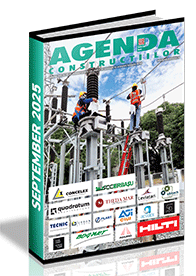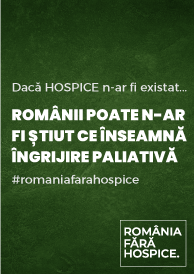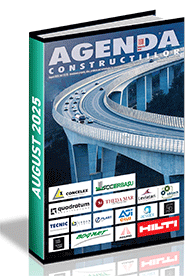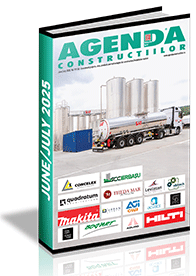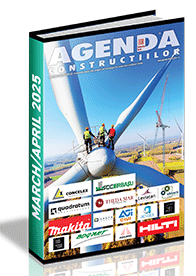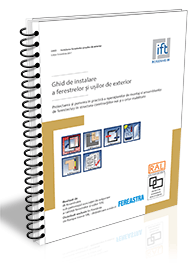| IMF: The post-crisis recovery remains fragile and the outlook is challenging |
| English Section Publicat de Elena Icleanu 24 Oct 2012 16:17 |
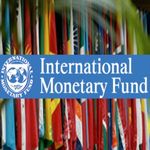 Following the severe downturn in 2008–09, the Romanian economy has undertaken a large adjustment to restore macroeconomic stability. Under two successive IMF Stand-By Arrangements and with support of the European Commission and the World Bank, significant progress has been made in reversing large external and internal imbalances. Sustained fiscal consolidation, mainly achieved through spending constraints of the wage bill and public pensions, has resulted in a significant reduction of the fiscal deficit. Growth resumed in 2011 and annual inflation has declined to record lows earlier this year. Unemployment remains high, but labor market reforms have contributed to a better-functioning labor market and a recovery in employment. Bank capital buffers have been shored up and contingency plans have been prepared. Structural reforms in the energy and transportation sectors have progressed, albeit slowly. These policy actions have helped to ease financing pressures and allowed Romania renewed access to the Eurobond market. Nevertheless, the post-crisis recovery remains fragile and the outlook is challenging. With strong trade and financial sector linkages to the euro area, Romania remains vulnerable to the regional economic slowdown. While the economy is expected to grow by 0.9 percent this year, the growth momentum has been weak, and is lagging behind most other European emerging economies. Difficulties in absorbing European Union structural funds and frequent delays in advancing the structural reform agenda are weighing on the economy’s potential growth. The weak recovery together with the so far moderate ongoing private sector deleveraging, mainly concerning households, are impacting the banking system as nonperforming loans accumulate, bank profitability continues to be low, and real credit growth remains subdued. Heightened uncertainty owing to political tensions between the ruling coalition and the President has taken a toll on investor confidence, leading to capital outflows and exchange rate depreciation pressures. These developments along with rising inflationary pressures have underscored the need for a prudent monetary policy stance. Strong commitment to achieving fiscal sustainability and judicious implementation of the structural reform agenda remain crucial to anchor policy credibility, ensure macroeconomic stability, and boost inclusive growth. Following the severe downturn in 2008–09, the Romanian economy has undertaken a large adjustment to restore macroeconomic stability. Under two successive IMF Stand-By Arrangements and with support of the European Commission and the World Bank, significant progress has been made in reversing large external and internal imbalances. Sustained fiscal consolidation, mainly achieved through spending constraints of the wage bill and public pensions, has resulted in a significant reduction of the fiscal deficit. Growth resumed in 2011 and annual inflation has declined to record lows earlier this year. Unemployment remains high, but labor market reforms have contributed to a better-functioning labor market and a recovery in employment. Bank capital buffers have been shored up and contingency plans have been prepared. Structural reforms in the energy and transportation sectors have progressed, albeit slowly. These policy actions have helped to ease financing pressures and allowed Romania renewed access to the Eurobond market. Nevertheless, the post-crisis recovery remains fragile and the outlook is challenging. With strong trade and financial sector linkages to the euro area, Romania remains vulnerable to the regional economic slowdown. While the economy is expected to grow by 0.9 percent this year, the growth momentum has been weak, and is lagging behind most other European emerging economies. Difficulties in absorbing European Union structural funds and frequent delays in advancing the structural reform agenda are weighing on the economy’s potential growth. The weak recovery together with the so far moderate ongoing private sector deleveraging, mainly concerning households, are impacting the banking system as nonperforming loans accumulate, bank profitability continues to be low, and real credit growth remains subdued. Heightened uncertainty owing to political tensions between the ruling coalition and the President has taken a toll on investor confidence, leading to capital outflows and exchange rate depreciation pressures. These developments along with rising inflationary pressures have underscored the need for a prudent monetary policy stance. Strong commitment to achieving fiscal sustainability and judicious implementation of the structural reform agenda remain crucial to anchor policy credibility, ensure macroeconomic stability, and boost inclusive growth.Executive Board Assessment
Executive Directors commended the Romanian authorities for restoring macroeconomic stability and reducing large external and fiscal imbalances. Directors noted however that the difficult external environment and domestic political uncertainty are weighing on the economy. They welcomed the authorities’ continued commitment to the program objectives, stressing the importance of sustained policy discipline and accelerated implementation of structural reforms to reinforce the economy’s resilience and boost its growth potential. Directors commended the sizeable fiscal adjustment undertaken and welcomed the authorities’ commitment to stay within the 2012 fiscal target of 3 percent and reach the medium-term objective by 2014. They recognized the significant progress made in reducing current spending and encouraged continued restraint ahead of the upcoming elections. Directors emphasized the importance of prioritizing capital outlays and improving EU funds absorption. They also underscored the need to take remedial measures to reduce outstanding arrears and avoid further accumulation of arrears, in particular at the local government level. Reform of the healthcare system should help address medium-term fiscal pressures, while improving service delivery. Directors stressed that accelerating the pace of structural reforms is critical to fostering higher and inclusive growth. They welcomed the progress on labor market reform and energy prices but underscored the need for further action in the energy and transportation sectors, while protecting the poor. Deeper reform and privatization of the state-owned enterprises and improvements in the institutional and regulatory frameworks and the business climate are priorities going forward. Directors also called for stepped up efforts to increase the employment rate and reform the education system. Directors underscored the importance of pursuing a prudent monetary policy stance while maintaining exchange rate flexibility. They encouraged the central bank to limit intervention in the foreign exchange market to smoothing volatility and to stand ready to tighten the policy stance should exchange rate pressures persist. Directors noted that the Romanian banking system maintains significant buffers to deal with the potential adverse effects of tensions in euro area financial markets. They encouraged the authorities to continue to strengthen bank supervision and the financial sector safety net, and mitigate the rise in nonperforming loans. Detailed information available on www.imf.org |
ABONARE REVISTA (click aici): PROIECTE | INVESTITII | REVISTE | INDEX COMPANII
DATE DE CONTACT: Agenda Constructiilor & Fereastra - Tel/Fax: 021-336.04.16, 031-401.63.88










